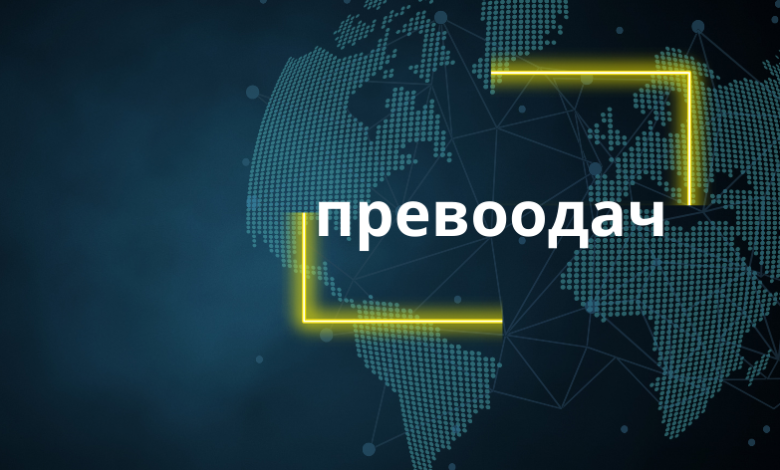Where Does “превоодач” Come From?

“превоодач” may sound unfamiliar to many, but its significance in the realm of language and communication is profound. In this article, we delve into the origins, cultural significance, and modern usage of this intriguing term.
Linguistic Roots:
The term “превоодач” originates from the Serbian language, where it denotes a translator. Its etymology can be traced back to the Slavic roots of the language, signifying the importance of linguistic exchange even in ancient times. Over the years, the meaning of “превоодач” has evolved to encompass various forms of translation and interpretation.
Cultural Significance:
In Serbian society, a “превоодач” holds a respected position, serving as a bridge between languages and cultures. Beyond mere translation, they play a crucial role in preserving cultural nuances and ensuring effective communication between diverse communities. The term has become ingrained in the cultural fabric, symbolizing the importance of linguistic diversity and understanding.
Historical Context:
The historical context surrounding “превоодач” is rich and diverse. From the early days of written language to the era of globalization, translators have played a pivotal role in shaping human interaction and knowledge exchange. Historical events such as wars, migrations, and trade routes have influenced the spread and adoption of the term across different regions.
Global Adoption:
While rooted in Serbian language and culture, the term “превоодач” has transcended borders and gained recognition on a global scale. With the increasing interconnectedness of the world, the demand for skilled translators has surged, leading to the widespread adoption of the term in various languages and contexts.
Modern Usage:
In today’s digital age, “превоодач” encompasses a wide range of translation activities, from literary works to technical documents and multimedia content. Technological advancements have revolutionized the field, with tools such as machine translation and AI-powered software augmenting the capabilities of human translators.
Challenges and Criticisms:
Despite its importance, the term “превоодач” is not without its challenges and criticisms. Misinterpretations and mistranslations can lead to misunderstandings and cultural inaccuracies, highlighting the need for skilled and culturally sensitive translators. Additionally, the rise of machine translation has raised concerns about job displacement and quality control in the industry.
Future Prospects:
Looking ahead, the future of “превоодач” remains promising yet uncertain. As technology continues to advance, translators will need to adapt to changing linguistic landscapes and evolving communication trends. However, the human touch and cultural insight provided by skilled translators will remain invaluable in ensuring accurate and meaningful translation.
Conclusion:
In conclusion, the term “превоодач” serves as a testament to the power of language and the importance of cross-cultural communication. From its linguistic roots to its global adoption, “превоодач” continues to shape the way we connect and interact in an increasingly interconnected world.
FAQs:
- What does “превоодач” mean?
- “превоодач” is a Serbian term that refers to a translator.
- Is “превоодач” specific to any language?
- While originating from Serbian, the term has been adopted in various languages to denote a translator.
- How does “превоодач” differ from other translation terms?
- “превоодач” emphasizes the role of translators in bridging linguistic and cultural gaps, encompassing both written and oral translation.
- Can anyone become a “превоодач”?
- While language skills are essential, becoming a skilled “превоодач” requires cultural awareness, empathy, and a deep understanding of both source and target languages.
- Are there any famous “превоодач” in history?
- Yes, throughout history, there have been many renowned translators who have made significant contributions to literature, diplomacy, and cross-cultural understanding.



